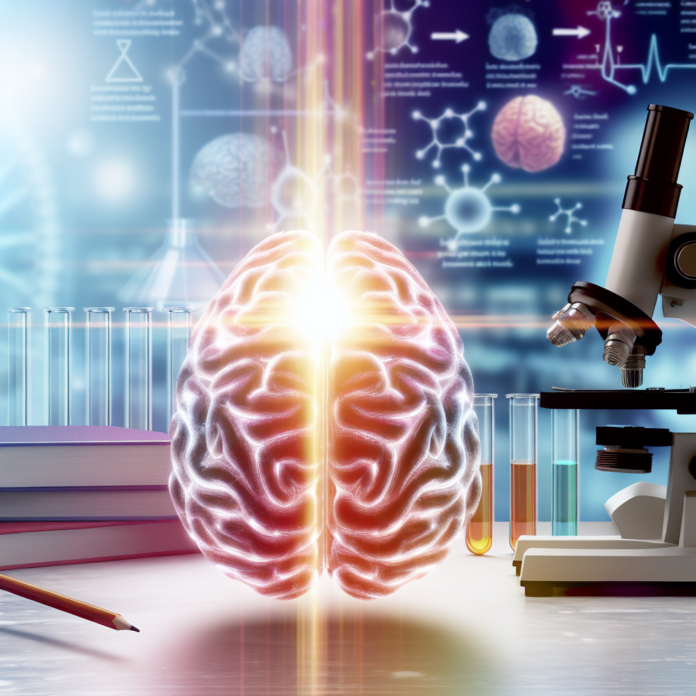Unlocking the Mind: How Neuroscience is Revolutionizing Mental Health and Learning
Imagine for a moment that your brain is a massive, intricate gaming console. Every thought, memory, and emotion is a different game on that console, each with its own set of challenges and rewards. Now, what if you could access hidden shortcuts within those games—paths that could lead you to better mental health and quicker learning? Well, thanks to advances in neuroscience, that dream is inching closer to reality.
As hardcore gamers, casual players, or tech enthusiasts, we often juggle various challenges, from managing stress to absorbing new information quickly. But what if I told you that understanding how our minds work at a neurological level could unlock powerful tools for mental wellness and effective learning? Let’s dive into how neuroscience is revolutionizing these critical aspects of our lives and how you can benefit from these discoveries.
The Brain: Your Personal Gaming Console
To appreciate how neuroscience can enhance our mental health and learning, let’s take a shortcut through the brain’s unique architecture. Imagine the brain as a multi-layered strategy game. On the surface, it consists of various functional areas, just like a game map with hidden zones to explore.
Neuroscience reveals that different parts of the brain are tuned to specific tasks. For example, the prefrontal cortex is involved in decision-making, while the amygdala controls emotional responses. Just as gamers often strategize to overcome obstacles, understanding these brain functions can help us bypass emotional pitfalls and enhance our cognitive skills.
The Neuroscience of Mental Health
Gone are the days when mental health treatments solely relied on guesswork. Neuroscience offers a deep dive into the underlying mechanisms of mental health issues like anxiety, depression, and even ADHD. The brain’s neuroplasticity—the ability to reorganize itself by forming new neural connections—provides hope for those seeking improved mental wellness.
For example, cognitive-behavioral therapy (CBT) is a neuroscience-backed method that rewires the brain’s pathways to foster healthier thought patterns. Think of it like a game update patch that fixes glitches in your mental processes. Modern technologies, such as neurofeedback training, allow individuals to learn how to optimize their brain activity in real-time, similar to adjusting your game settings for peak performance.
Learning—From Struggles to Speedruns
Have you ever felt stuck in a game, unable to progress to the next level? Learning can sometimes feel that way, especially when faced with complex material. Neuroscience is here to provide some cheat codes. Research shows that engaging multiple senses while learning can enhance retention. Utilizing this concept through multimodal learning—where visuals, sounds, and physical activities converge—can propel knowledge retention to new heights.
For example, if you’re trying to learn a complicated concept in programming or game design, watching a video tutorial while simultaneously coding along can dramatically improve understanding. It’s like playing a tutorial level that teaches you tricks in real-time.
Practical Applications: Mindfulness and Gamification
The intersection of neuroscience and mental health has birthed engaging tools designed to aid well-being and learning. Two prominent methods are mindfulness practices and gamification.
Mindfulness acts as a powerful tool for stress reduction. Techniques such as meditation and deep-breathing exercises activate the brain’s relaxation response by diminishing the amygdala’s fear output. Engaging in mindfulness is like hitting the reset button in a game, clearing the clutter to focus on the task at hand.
On the other hand, gamification applies game-design elements in non-gaming contexts to enhance learning and motivation. By incorporating challenges and rewards, learners are actively engaged, making skill acquisition feel like a quest rather than a chore. For instance, language-learning apps that give you points for daily practice resemble leveling up in a game. This approach exploits the brain’s reward systems, giving players a reason to keep grinding.
Neuroscience and the Future of Learning
The trajectory of neuroscience shows immense promise. Emerging technologies like virtual reality (VR) are now being harnessed to create immersive learning environments. Picture yourself inside a simulation, where learning happens as you interact with the surrounding elements—think of it as merging your favorite video game with school lessons. This immersive experience caters to the brain’s natural learning tendencies, providing firsthand experiences that enhance memory retention.
Also, brain-machine interfaces are beginning to pave the way for more profound impacts on mental health and learning. Imagine controlling game mechanics or learning applications with just your thoughts, making the whole process feel seamless and intuitive. As these technologies evolve, we’re stepping into a new era where personalized learning becomes a reality, tailored specifically to each individual’s brain patterns.
Your Next Steps: Making Neuroscience Your Ally
So, how can you incorporate these groundbreaking insights into your life? Here’s a simple roadmap to start harnessing the power of neuroscience:
- Practice Mindfulness: Incorporate mindful moments into your daily routine. Apps like Headspace or Calm can help you get started.
- Engage Multiple Senses: When learning new material, mix methods. Use flashcards, videos, and hands-on projects to deepen understanding.
- Embrace Gamification: Use apps that gamify learning to boost your motivation. From language learning to math, there’s something for everyone.
- Explore VR Learning: If you’re tech-savvy, consider experimenting with VR platforms that focus on educational content.
The future of mental health and learning is not just about knowledge; it’s about finding innovative ways to engage and empower ourselves. Understanding how our brains operate can give us the edge we need—not just in gaming, but in life itself. So go ahead, embrace these new strategies, and unlock the full potential of your own mind. Happy exploring!

